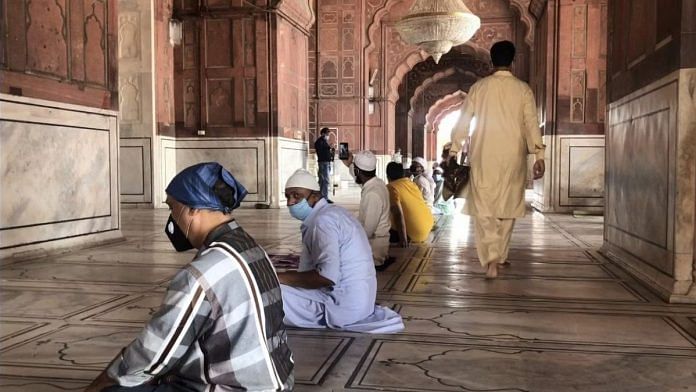The Supreme Court of India, almost three decades ago, directed the Delhi government to pay monthly remuneration to Imams serving the city’s mosques. Three years ago, ahead of the 2020 assembly election, Delhi Chief Minister Arvind Kejriwal addressed a gathering of Imams and increased the remuneration from Rs 10,000 to Rs 18,000 a month, ostensibly for the sake of the vote bank. Kejriwal was criticised for denying citizens the right to information in certain cases when Central Information Commissioner Uday Mahurkar wrote a letter to the Delhi Lieutenant Governor last October.
RTI activist Subhash Chandra Agrawal recently moved an application under the Right to Information (RTI) Act before the Delhi Waqf Board inquiring about the amount spent, in addition to several other questions. Most of them were not answered properly. CIC Mahurkar raised questions on this politics of appeasement and said the Supreme Court’s 1993 order was “in violation of the Constitution”.
While hearing Agrawal’s appeal, Mahurkar summoned officers from Delhi Waqf Board, the Revenue Department and the CM office. In response, on 2 November, the Waqf Board informed Agrawal that no salary was being paid. But after the summon, on 16 November, they produced the annual records. Earlier, the Board used to spend Rs 1.5 to Rs 2.5 crore as honourarium. The amount later increased to Rs 9-10 crore per annum. The Imams and their assistants practising outside the Waqf Board are paid Rs 14,000 and Rs 12,000 per month.
The CIC’s decision on 25 November has directed the government of Delhi and the Waqf Board to provide proper information to the petitioner free of cost within a month, in addition to the compensation worth Rs 25,000 for the violation of citizens’ right to information. There has been a debate on the scope of Article 27 of the Indian Constitution, which prohibits such expenditure to any specific religion at the expense of the State exchequer. Although the Waqf Board and the government of Delhi did not challenge this decision, this issue reached the Supreme Court. In fact, an application to initiate criminal contempt proceedings was rejected by R. Venkatramani, the attorney general. The same lobby is now trying hard to initiate it with the help of the Chief Justice of India and his colleagues. A fair judicial scrutiny and a criminal contempt proceeding are two different things. The question here is whether there will be any change in the politics of appeasement.
Also read: Indian madrasas are thought-influencers. Their funding, modernisation should be priority
A constitutional error needs correction
In the early 1990s, the All-India Imam Organisation approached the Supreme Court in order to obtain remuneration for their services to a mosque. As a result, on 13 May 1993, the Supreme Court directed the government to pay the Imams as they were paid in Punjab. The Caliph of Baghdad himself used to lead the namaz. When the Imam was entrusted with this responsibility, they got payment for such noble work. But still, there are many Muftis giving free service among the Maulanas.
The division bench comprising Justice R.M. Shahi and Justice K. Ramaswamy considered these issues to interpret sections 15 and 36 of the Waqf Act and Articles 14, 21 and 23 of the Constitution. According to their verdict, the remuneration was necessary to live a life of dignity. But it did not consider the provision of Article 27 of the Constitution to avoid the burden on the State exchequer. In fact, it is the management of a mosque, like a temple trust, that should pay the Imams. In that case, the State would have been responsible for the implementation of this instead of being forced to use its revenue.
The CIC has recommended a correction. Mahurkar, while discharging his official duty as an information commissioner, pointed out the constitutional error that can create a new kind of crisis along communal lines. It needs serious discussion in public, including in Parliament and assemblies. The Supreme Court can address this issue in the national interest. If the democratic institutions fail to act on this, the concept of equality will be in peril which won’t serve national interests.
The CIC verdict has discussed the economic security of people engaged in services of different sects. On the one hand, it tried hard to break the silence on payment of the Imams, and on the other hand, it questioned the status of the weaker sections serving in the temple and other religious institutions. As such, its scope is not limited to a mosque and its leaders. One can hope the decision can pave the way for freedom from the exploitation of weaker sections in religious institutions. The Union law minister has been rightly asked to take cognisance of the matter.
The question related to the politics of appeasement is not new in India. One hopes that the democratic institutions today will safeguard the economic security of the priestly class regardless of the religion they belong to.
The author is an environmental activist. He tweets @mrkkjha. Views are personal.
(Edited by Prashant)



